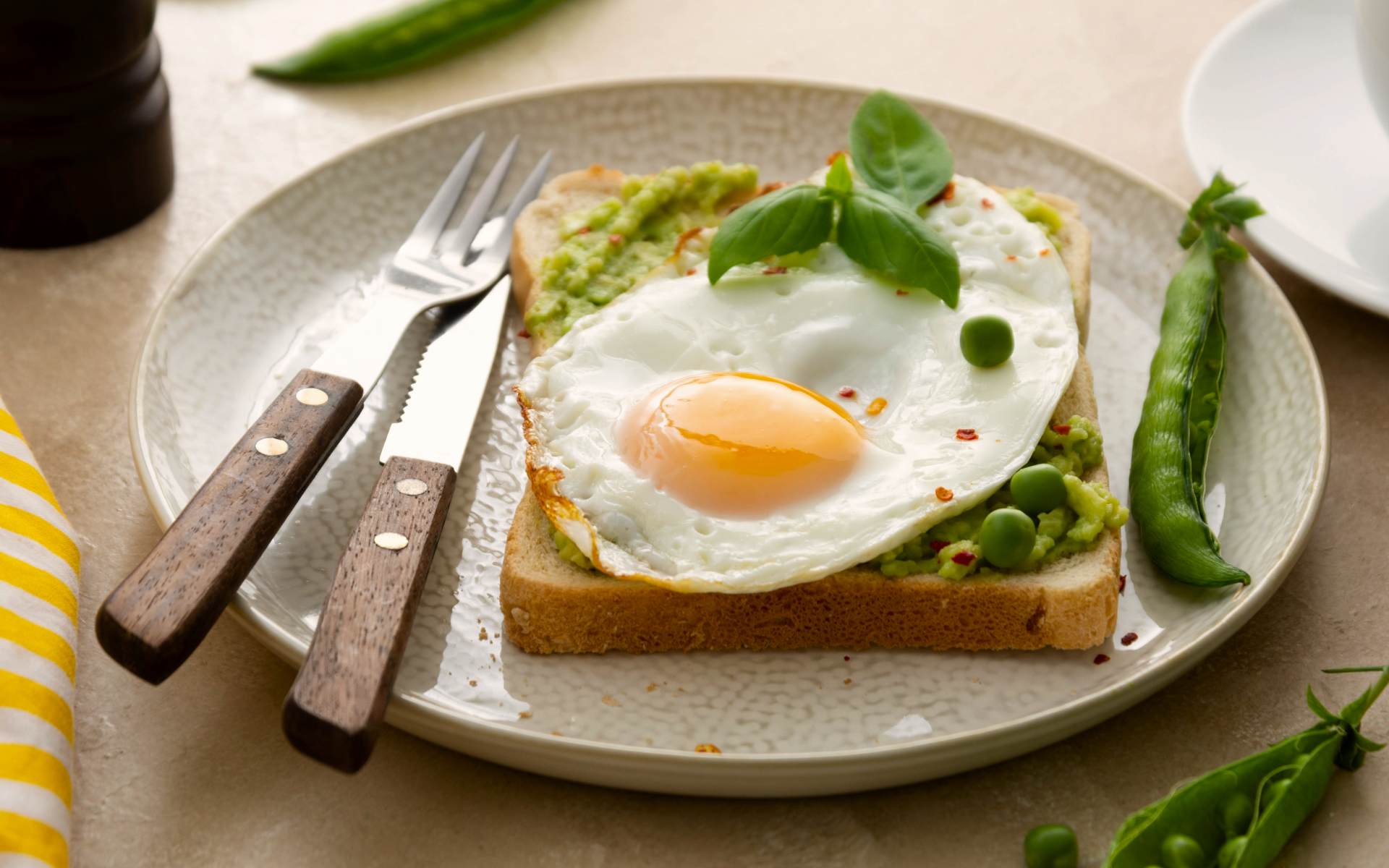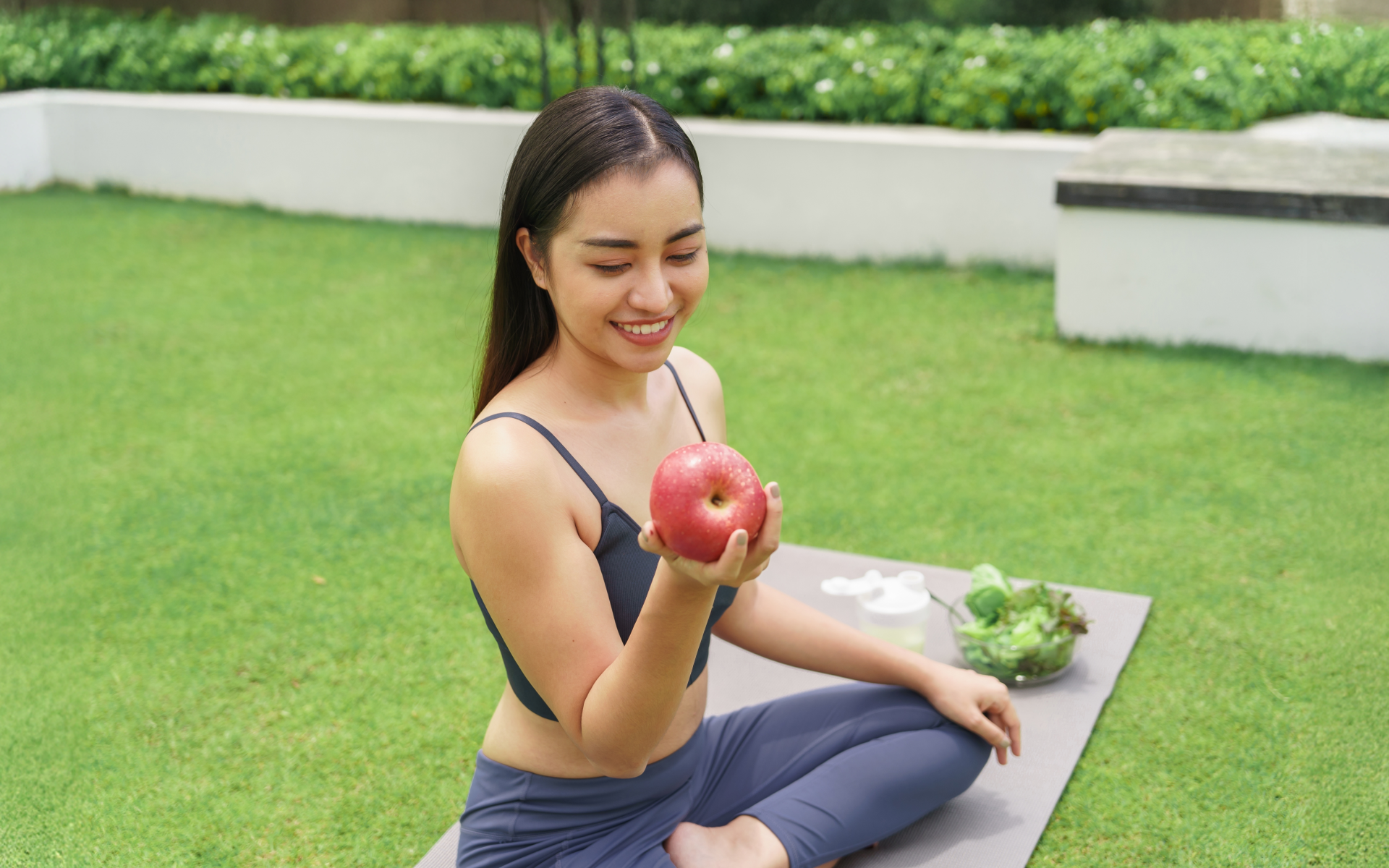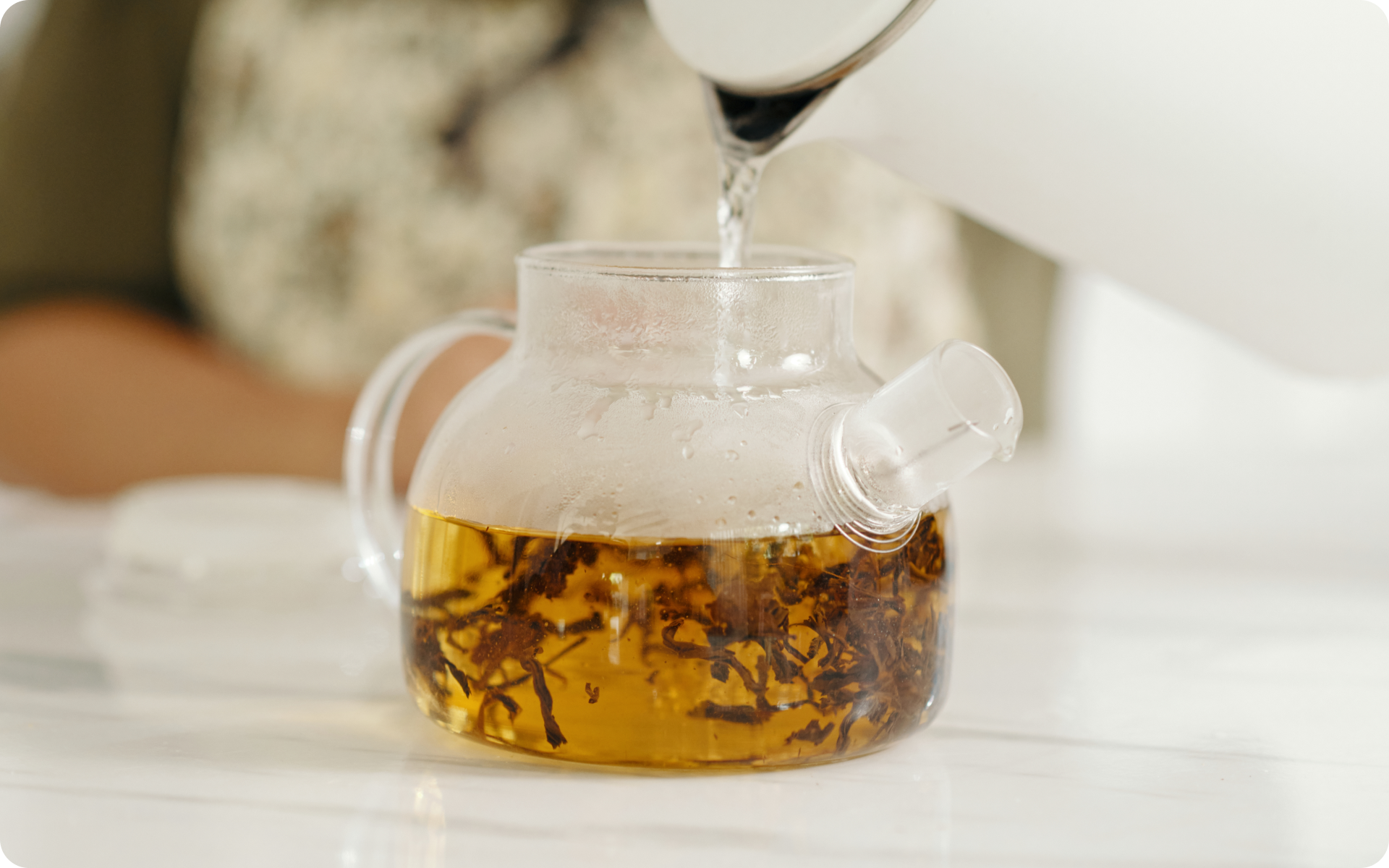White sugar is one of the most common ways to sweeten tea or coffee. This can give you a buzz that drives you throughout the day. While it is not harmful to consume some sugar, there are other ways to sweeten your beverages. Here we have the perfect guide to sweeteners that could give your coffee game a makeover!
Coffee contains antioxidants that may have health benefits (5). That said, adding too much sugar can contribute to weight gain. While it is common to look for other ways to sweeten coffee, there are some important things to unpack. Read on and find out!
What is the Healthiest Thing to Sweeten Coffee With?
Finding alternatives to refined sugar can be a journey. Each sweetener has a different intensity and taste. How much you consume depends on the level of sweetness you prefer—all added sugar counts, whether it is natural or processed. You might like unsweetened coffee, especially if you choose the smoother types.
Check out some other ways to sweeten your coffee:
Agave Nectar
Agave nectar emerged in the sweeteners world around the 1990s from Mexico. It is extracted from the blue agave plant and can be a vegan alternative to honey. Its low glycemic index makes it intriguing for people who monitor their blood sugar levels (2). However, the reason its glycemic index is low is because it is low in glucose but very high in fructose, another type of sugar that needs to go through conversion in the liver before it is released into the bloodstream. That is why it takes a bit longer to impact blood sugar levels, but it is not any lower in sugar nor necessarily any healthier than table sugar, honey, maple syrup, or any other form of sugar.
Agave is available in different forms, like syrup, powder, and nectar. Apart from the coffee, agave is also used to sweeten baked goods.
Honey
Raw honey is another option to sweeten coffee in the morning. It has antimicrobial, anti-inflammatory, and antioxidant properties (6). Some say that the various health benefits honey offers make it worth adding to your diet, even if you aren’t using it in coffee.
Honey isn’t just sweet. It has trace amounts of vitamins and minerals, too. Some experts state that it can help with tummy troubles (12). Start with a teaspoon in your coffee and add more if you like the taste. You should know that honey has more calories by volume than white or brown sugar because it is more dense (10). Honey is also still considered an added sugar, and despite its potentially beneficial properties, isn’t straightforward any healthier than table sugar or any other form of sugar.
Stevia
Stevia can be used as a replacement for sugar. It comes from the stevia plant, but most assume it is an artificial sweetener. The powdered product has gone through a particular chemical process to convert into the form you find on the shelves. This extract is about 300 times sweeter than sugar, yet it doesn’t impact blood sugar (14).
Two clinical trials in Taiwan in the early 2000s suggested that stevia may help lower blood pressure as an adjunct therapy in people being treated for hypertension (18, 19). The Life Extension Magazine classifies stevia as a sweetener that may help control high blood sugar and fight insulin resistance (15).
The only caution to using stevia in coffee is that it is related to other plants that are known to cause allergies, such as ragweed, chrysanthemum, and sunflower seed (3). So, if you have any allergies to these related plants, it is better to steer clear of its use.
Maple Syrup
Maple syrup is usually added to pancakes and baked goods to enhance sweetness. A drizzle of this syrup could also be added to the coffees!
It contains antioxidants and minerals like zinc and magnesium (13). In 2010, researchers from the University Of Rhodes Island found that maple syrup contains phenolics. These are the same antioxidant compounds as those in berries (13).
Try to look for pure maple syrup to be sure you are using an alternative to sugar in coffee. There are many artificial products available in stores, which are just flavored sugar syrups. However, even real maple syrup is high in sugar and still considered an added sugar, like honey, agave, and table sugar.
Coconut Sugar
Coconut sugar is derived from the sap of coconut palm trees, not from coconuts. It is a popular sweetener in many vegan diets because it comes from plants. Despite its reputation as “healthy,” its nutritional profile is nearly identical to cane sugar (4).
Again, it has a lower glycemic index than table sugar because it is high in fructose, which doesn’t necessarily make it healthier (11). Also, the taste of sugar is nut flavored. Depending on the brand you are using, you can taste some coconut in your coffee. This can be a nice flavor for some people but distasteful for others.
Molasses
Molasses was a common sweetener used across the United States after World War I. When refined sugar became more expensive, people switched to molasses for their tea, coffee, and baked goods. These days, syrupy molasses is still available as a sweetener in eateries in the South.
Molasses is a byproduct of sugar production. During the refining process, plant juice is concentrated, resulting in this thick syrup with a healthier nutritional profile than refined sugar (16). The antioxidants are higher in quantity in dark molasses than any other form of sugar, but it is still sugar.
Vanilla Extract
A dash of vanilla in your iced coffee or latte can give it a unique but delicious flavor. Besides its flavor, the extract may also contain antioxidants. A 2020 test-tube study showed that specific components of vanilla may have a protective effect on brain cells (17).
It is essential to read the label carefully when you add vanilla to your pantry. Some brands have added sugar that defeats the purpose of skipping sugar-based coffee sweeteners. And if you like to play with the flavors, consider using nutmeg, cocoa powder, or cinnamon along with vanilla extract. In fact, many health experts suggest the benefits of coffee with cinnamon (7).
How Do You Make Coffee Taste Better Without Sugar?
There is no rocket science when wondering how to sweeten coffee with sugar. Just add a spoon or two according to your preference, and you are good to go. It is when you want to sweeten without sugar that you have to learn a trick or two.
Following these steps could help:
Grind the Fresh Beans
Freshly ground coffee or freshly roasted beans are essential to minimize bitterness. Older grounds can turn bitter or stale after air exposure. Get freshly roasted beans and grind them before making coffee.
Choose the Proper Grind
Coffee that is too bitter is usually the result of over-extraction. When the hot water gets too bitter a flavor from the beans, it creates an extra bitter cup of coffee. Finer coffee grounds make more robust coffee. If it tastes too bitter, try grinding the beans in less time.
Add filtered Water
Tap water contains minerals and extracts that can mix in the coffee and cause undesired flavors. Typically, people try to cover such flavors with sugar. It is better to use filtered water if you want to make your coffee sweet without sugar.
Choose the Right Temperature
Water temperature affects how much flavor can be extracted from coffee beans. Water that has a high temperature extracts more flavor, while colder water has less flavor. The ideal brewing temperature for coffee is between 195 and 205 degrees Fahrenheit. Boiling water can be used, but allowing it to cool for approximately 30 seconds ensures optimal flavor extraction.
Consider Cold Brew
If your coffee still tastes bitter, you should try the cold-brewing method. It uses water at room temperature to get flavor from the beans. This prevents the over-extraction of bitter notes that occur from hot water extraction, but it takes much longer to brew.
What Should I Put in Coffee Instead of Sugar?
Try to experiment with different options like spices or natural extracts. Look for the sweet variants that could add flavor to your coffee without sugar. For instance, consider adding a dash of cinnamon, cocoa powder, or nutmeg for a subtle sweetness and deep flavor.
Another option is to use flavored sugar-free coffee syrups or extracts, like hazelnut or almond. This can enhance the taste of your coffee without relying on sugar. Besides this, some people love to add a small amount of unsweetened coconut or almond milk to their coffee for a creamy texture and a dash of sweetness.
The best alternative to sugar in your coffee depends on your taste preference and dietary protocols.
What is the Healthiest Thing to Put in Coffee?
Coffee may already be a part of your mornings. But do you know that there is plenty of research exploring its health benefits?
These are some options that could be considered as healthy things to put in coffee:
- Ditch sugary flavor
- Add flavor to the grounds before brewing
- Use a low-calorie or sugar-free sweetener
- Ask for fewer pumps of syrup
- Add a sprinkle of cinnamon
- A few drops of pure vanilla extract
There are many healthy sweetener options for coffee beyond refined sugar. You can even use some of these options to make any other dish, like a coffee truffle. Remember that each of these options has a different taste and nutrition profile. These natural choices can improve your overall nutrition.
FAQs
What is the healthiest sugar substitute?
There is no single, healthy substitute for sugar. The best choice depends on individual preferences. Some of these top contenders might include stevia, maple syrup, or honey.
What is the healthiest sweetener?
None of the sweeteners can be categorized as the healthiest. Natural sweeteners like stevia and monk fruit may be preferable to artificial ones but still have limitations. Table sugar, honey, maple syrup, agave nectar, and coconut sugar are all considered added sugars and none are necessarily healthier than any other.
How can I add sweetness without sugar?
You can add sweetness to your food and beverages without sugar. Spices, extracts, and natural sweeteners are some options that could be used.
Is putting honey in coffee good?
Honey adds more complex sweetness than refined sugar. It contains trace vitamins, minerals, and antioxidants, but that doesn’t necessarily make it healthier or a better choice than any other form of added sugar.
The Bottom Line
The best way to sweeten your coffee is a way that tastes great and makes you feel good. It could be a touch of honey, a hint of spice, or the natural sweetness of quality beans. When you decide to ditch refined sugar, you can try multiple healthy ways to sweeten coffee. The trials may be distasteful sometimes, but once you get the flavor that makes your taste buds dance – you may never turn back to refined sugars!
DISCLAIMER:
This article is intended for general informational purposes only and does not serve to address individual circumstances. It is not a substitute for professional advice or help and should not be relied on for making any kind of decision-making. Any action taken as a direct or indirect result of the information in this article is entirely at your own risk and is your sole responsibility.
BetterMe, its content staff, and its medical advisors accept no responsibility for inaccuracies, errors, misstatements, inconsistencies, or omissions and specifically disclaim any liability, loss or risk, personal, professional or otherwise, which may be incurred as a consequence, directly or indirectly, of the use and/or application of any content.
You should always seek the advice of your physician or other qualified health provider with any questions you may have regarding a medical condition or your specific situation. Never disregard professional medical advice or delay seeking it because of BetterMe content. If you suspect or think you may have a medical emergency, call your doctor.
SOURCES
- 40 years of adding more fructose to high fructose corn syrup than is safe, through the lens of malabsorption and altered gut health–gateways to chronic disease (2024, ncbi.nlm.nih.gov)
- Agave Syrup: Chemical Analysis and Nutritional Profile, Applications in the Food Industry and Health Impacts (2019, researchgate.net)
- Allergy to Stevia Natural Sweetener (2022, verywellhealth.com)
- Coconut Sugar: Are There Health Benefits? (2023, webmd.com)
- Coffee and Antioxidants: Everything You Need to Know (2019, healthline.com)
- “Coffee plus Honey” versus “topical steroid” in the treatment of Chemotherapy-induced Oral Mucositis: a randomised controlled trial (2014, ncbi.nlm.nih.gov)
- Coffee with cinnamon – Impact of phytochemicals interactions on antioxidant and anti-inflammatory in vitro activity (2014, researchgate.net)
- Don’t use sugar substitutes for weight loss, World Health Organization advises (2023, edition.cnn.com)
- Effect of Stevia Consumption on Blood Pressure, Stress Hormone Levels and Anthropometrical Parameters in Healthy Persons (2017, thescipub.com)
- Honey Versus Sugar-Which is Healthier? (n.d., uaex.uada.edu)
- Is Coconut Sugar a Nutritious Replacement? (2023, verywellhealth.com)
- Novel Insights into the Health Importance of Natural Honey (2015, ncbi.nlm.nih.gov)
- Pure maple syrup contains medicinally beneficial compounds, pharmacy researcher finds (2010, sciencedaily.com)
- Stevia (2023, webmd.com)
- Sweet As Sugar: Health Benefits Of Stevia And Xylitol (2023, lifeextension.com)
- Sugar Cane and Sugar Beet Molasses, Antioxidant-rich Alternatives to Refined Sugar (2012, researchgate.net)
- Vanillin and vanillic acid modulate antioxidant defense system via amelioration of metabolic complications linked to Fe2+-induced brain tissues damage (2020, pubmed.ncbi.nlm.nih.gov)
- A double-blind placebo-controlled study of the effectiveness and tolerability of oral stevioside in human hypertension (2000, pubmed.ncbi.nlm.nih.gov)
- Efficacy and tolerability of oral stevioside in patients with mild essential hypertension: a two-year, randomized, placebo-controlled study (2003, pubmed.ncbi.nlm.nih.gov)









